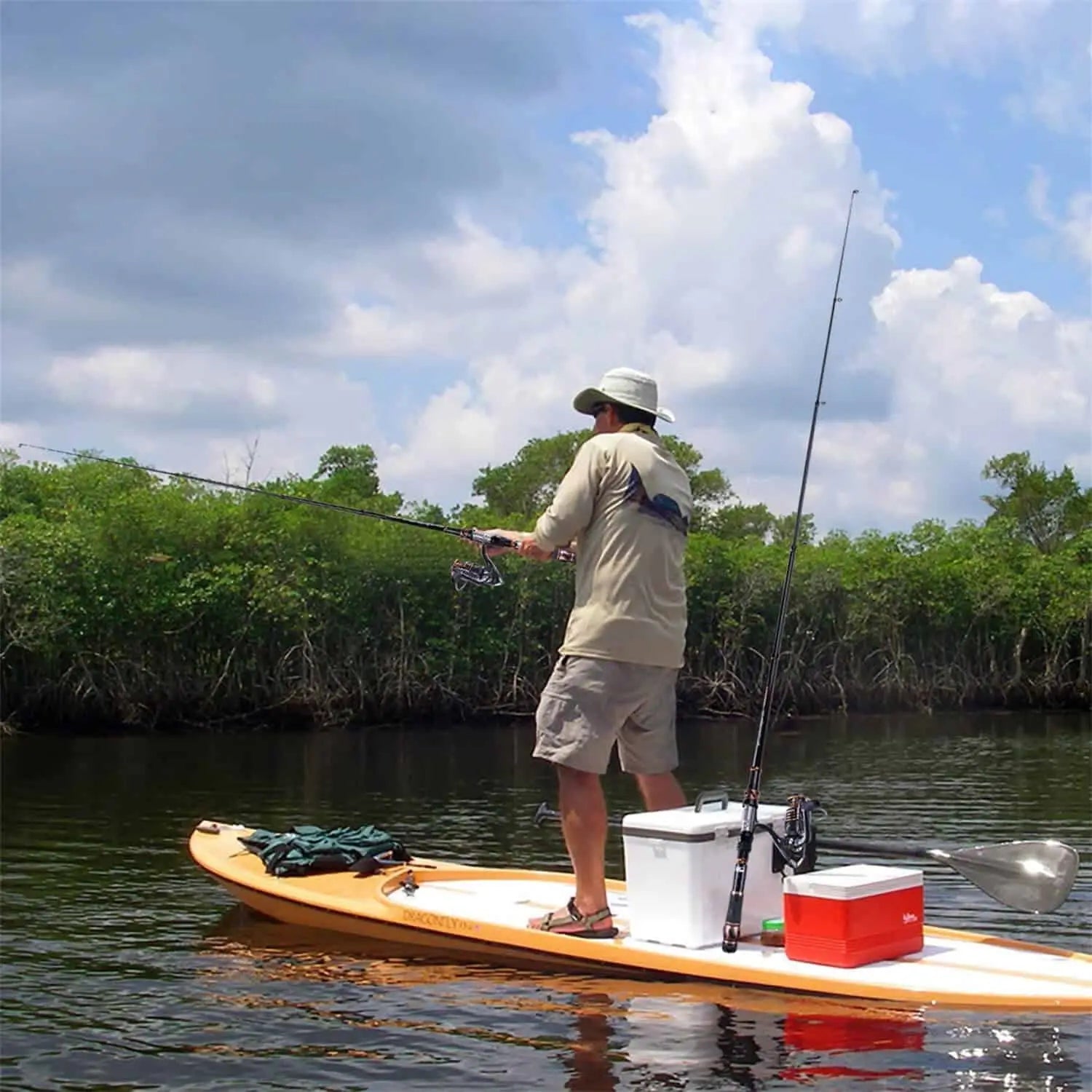When it comes to enjoying a successful fishing trip, having a well-maintained fishing rod and reel is essential. Proper maintenance and care not only extend the lifespan of your equipment but also ensure optimal performance on the water. In this article, we will explore some expert tips and techniques on how to properly maintain and care for your fishing rod and reel, so you can make the most out of your fishing experience.
Regular Cleaning and Inspection
One of the fundamental aspects of maintaining your fishing rod and reel is regular cleaning and inspection. After each fishing trip, it is crucial to clean your equipment thoroughly to remove any dirt, debris, or saltwater residue that may have accumulated. Start by rinsing your rod and reel with fresh water to remove any loose particles. Then, use a mild soap or fishing reel cleaner to gently scrub the surfaces. Pay close attention to the reel's gears, handle, and bail, as these areas are prone to dirt buildup.
After cleaning, it is important to inspect your fishing rod and reel for any signs of damage or wear. Check the guides on your rod for any cracks or chips, as these can cause line fraying and decrease casting accuracy. Inspect the reel's drag system to ensure it is functioning smoothly and adjust it if necessary. By regularly cleaning and inspecting your equipment, you can identify and address any issues before they become major problems.
Proper Storage
Proper storage is another crucial aspect of maintaining your fishing rod and reel. When not in use, it is important to store your equipment in a cool, dry place to prevent rust and corrosion. Avoid storing your rod and reel in direct sunlight or extreme temperatures, as this can damage the components. Additionally, make sure to store your rod in a rod sleeve or tube to protect it from accidental damage.
When storing your reel, it is recommended to loosen the drag to relieve tension on the internal components. This helps prevent premature wear and tear. If you have multiple fishing rods and reels, consider investing in a rod rack or reel case to keep them organized and protected.
Proper Handling and Usage
Proper handling and usage of your fishing rod and reel are essential for their longevity. When casting, avoid using excessive force or jerky movements, as this can strain the rod and reel and lead to damage. Instead, use smooth and controlled motions to cast your line. Additionally, avoid dragging your rod and reel on rough surfaces or banging them against hard objects, as this can cause scratches or dents.
It is also important to match your fishing rod and reel to the appropriate line and lure weight. Using a line that is too heavy for your rod can cause it to bend or break, while using a line that is too light can result in poor casting distance and accuracy. Refer to the manufacturer's guidelines or consult with a fishing expert to ensure you are using the correct line and lure weight for your equipment.
Regular Maintenance and Servicing
In addition to regular cleaning and inspection, it is recommended to perform regular maintenance and servicing on your fishing rod and reel. This includes lubricating the reel's moving parts, such as the handle and bail, with a high-quality reel oil. Lubrication helps reduce friction and ensures smooth operation. It is also important to periodically check and tighten any loose screws or fittings on your equipment.
For more complex maintenance tasks, such as replacing worn-out parts or repairing internal mechanisms, it is advisable to seek professional help from a reputable fishing equipment service center. They have the expertise and specialized tools to handle intricate repairs and ensure your fishing rod and reel are in top condition.
By following these tips and techniques on how to properly maintain and care for your fishing rod and reel, you can enjoy many successful fishing trips for years to come. Remember, investing time and effort in maintaining your equipment will pay off in terms of performance and longevity.
